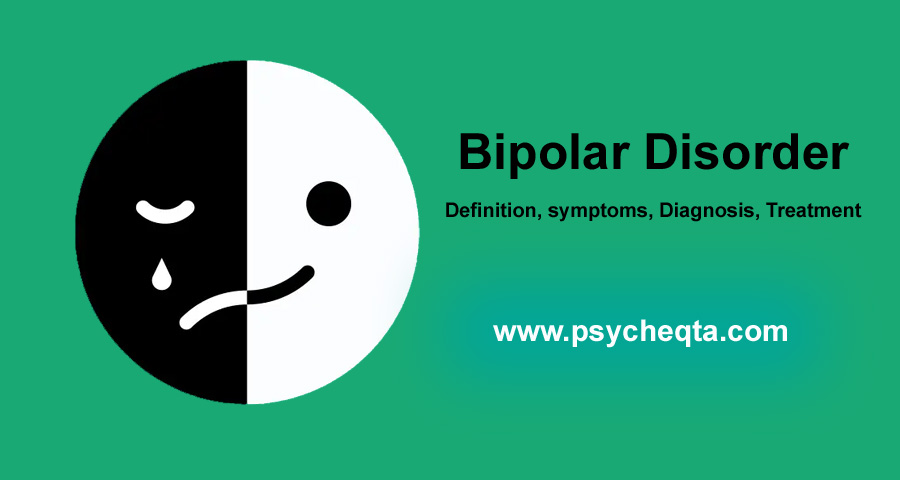Bipolar disorder, previously referred to as manic-depressive illness or manic depression, is a neurological condition that disrupts an individual’s typical mood, energy, activity levels, and concentration. These changes can create difficulties in carrying out everyday tasks. Individuals with bipolar disorder go through intense emotional episodes, which usually last for several days to weeks and can be categorized as either manic/hypomanic, featuring elevated or irritable moods, or depressive, characterized by feelings of sadness.
Symptoms of Bipolar disorder
Manic episode
Manic episode is most initial symptom of bipolar disorder. Following behaviors could be found during manic episode:
- Having decreased need for sleep (e.g., feeling energetic despite very less sleep)
- Start talking fast and making ideas.
- Experiencing uncontrollable racing thoughts or rapidly shifting ideas or subjects when speaking.
- Experiencing elevated moods characterized by feelings of happiness, elation, or extreme irritability and sensitivity.
- Experiencing a sense of increased energy and ability to multitask without experiencing fatigue.
- Engaging in more risky behavior than usual, such as reckless driving or impulsive spending sprees.
- Having excessive appetite for food, drinking, sex, or other pleasurable activities
Depressive Episode
In a depressive episode, patients feel very low and lethargic. At this stage patients’ mode changes from up to down which can lead to feelings of lethargy, lack of motivation, and sadness. Symptoms of depressive episode are as follow:
- Feeling very down or sad, or anxious.
- Talking very slowly, feeling unable to find anything to say, or forgetting a lot.
- Trouble in falling asleep, waking up too early, or sleeping too much.
- Lack of interest in almost all activities including food, drinking, sex etc.
- Feeling hopeless or worthless, or thinking about death or suicide.
Treatment of Bipolar disorder
It is a mental health issue and could be treated with psychiatric medication and psychological therapies. It is highly recommended to visit psychiatrist and psychologist in case of bipolar disorder as soon as possible. Psychiatrist will prescribe medicine and psychologist will use different psychotherapies including talk therapy, Cognitive behavioral therapy (CBT), interpersonal and social rhythm therapy (IPSRT) and family-focused therapy.
